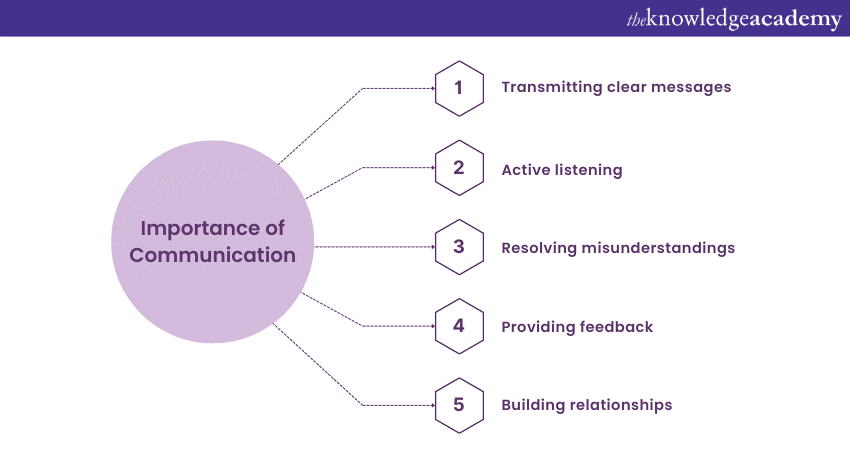We may not have the course you’re looking for. If you enquire or give us a call on +353 12338944 and speak to our training experts, we may still be able to help with your training requirements.
We ensure quality, budget-alignment, and timely delivery by our expert instructors.

Are you an executive, an aspiring team leader, or someone aiming to climb the corporate ladder? If yes, then mastering essential Management Skills can significantly enhance your career trajectory.
In today's fast-paced and competitive professional landscape, possessing effective Management Skills is not just an advantage, but a necessity. So, it’s time to learn and develop these skills to grab greater responsibilities and leadership opportunities in the future.
However, if you don’t know what these skills are and how to develop them, then this blog is for you. In this blog, you will learn about the top Management Skills for a successful career. Let’s delve in deeper to learn more.
Table of Contents
1) Key Management Skills
a) Communication skills
b) Decision-making skills
c) Delegation
d) Time management
e) Problem-solving
f) Adaptability
g) Emotional intelligence
h) Conflict resolution
i) Team building
j) Coaching and mentoring
2) Conclusion
Key Management Skills
These days the business landscape is constantly changing. Possessing good Management Skills is essential for success. No matter where you are placed in the organisational setup, honing these skills can help you navigate challenges, inspire your team, and achieve remarkable results. Let's explore the top Management Skills that can propel your career to new heights:
Communication skills: The foundation of effective management
Effective communication is the bedrock on which successful management is built. Your ability to communicate clearly and persuasively is paramount to your team's success and the overall performance of your organisation. Let's delve into the importance of Communication Skills and how they contribute to effective management:

1) Transmitting clear messages: Your role may involve conveying information, instructions, and expectations to your team members. Clear and concise communication ensures that everyone understands their functions, responsibilities, and the goals they need to achieve.
2) Active listening: Communication is a two-way street. Being an active listener enables you to understand the concerns, ideas, and feedback of your team members. This fosters trust and encourages open dialogue, leading to improved problem-solving and decision-making.
3) Resolving misunderstandings: Misunderstandings can lead to confusion and conflicts within the team. Effective communication allows you to clarify any misconceptions and ensure that everyone is on the same page, avoiding potential pitfalls.
4) Providing feedback: Regular feedback is essential for employee growth and development. By mastering communication, you can provide constructive feedback that motivates and empowers your team to excel.
5) Building relationships: Strong relationships are at the core of successful management. Effective communication fosters connections and a positive work culture, enhancing team morale and productivity.
Effective Interpersonal Communication Skills can be a gamechanger in your career. By mastering the art of communication, you can facilitate a positive work environment, build strong relationships, and motivate your team to touch new heights of success.
Unlock your leadership potential and propel your career to new heights with our Management Courses – Sign up today!
Decision-making Skills: Making informed choices
Managers, leaders and executives face a myriad of decisions on a daily basis, ranging from routine operational choices to critical strategic decisions. Decision Making Skills are vital in making these difficult choices. The ability to make well-informed and timely choices is vital for driving organisational success. Effective decision-making involves gathering and analysing relevant data, considering alternative options, and understanding the potential consequences of each choice.
Delegation: Empowering your team for success
Delegation one of the Management Skills that empowers both managers and their teams. It is about entrusting tasks to individuals based on their strengths and competencies. By delegating responsibilities effectively, individuals allow team members to take ownership of their work, foster skill development, and boost overall productivity. This delegation also enables leaders to focus on high-level strategic planning and other critical managerial duties.
Time management: Mastering productivity
Time management is a critical aspect of effective management in the fast-paced business world. It involves prioritising tasks, creating schedules, and eliminating time-wasting activities to maximise productivity. Developing Time Management Skills not only ensures that deadlines are met but it also enables managers to allocate sufficient time for strategic planning and personal development.
Problem-solving: Overcoming challenges in the workplace
Problems are inevitable in any workplace, and effective leaders are adept at tackling challenges head-on. Strong Problem Solving Skills allow managers to identify root causes, evaluate potential solutions. It also allows them to implement effective strategies to overcome obstacles. By encouraging a problem-solving culture within the team, managers can foster innovation and creativity.
Discover the art of effective problem-solving with our Problem Solving Training – Sign up now!
Adaptability
Adaptability is a crucial Management Skill in today's ever-changing business landscape. Successful managers and leaders embrace change and remain flexible. It enables them to lead their teams through difficult times and capitalise on new opportunities. Moreover, being open to new ideas and approaches helps organisations stay competitive and resilient.
Emotional intelligence: Understanding and managing emotions
Emotional intelligence is a hallmark of effective managers, executives and leaders. It involves recognising and managing one's emotions and empathising with others. Leaders with high Emotional Intelligence create a positive work environment, handle conflicts with empathy and understanding, and inspire their teams to perform at their best.
Conflict resolution: Fostering positive working relationships
Conflicts are natural in any team setting and professionally addressing them is essential for maintaining a harmonious workplace. Efficient managers and leaders have the skills to navigate conflicts constructively. They also find win-win solutions that benefit all parties involved. Using proper Conflict Management Strategies will result in positive working relationships and enhances team cohesion.
Team building: Creating a cohesive and productive team
A cohesive and productive team is the backbone of a successful organisation. Managers, executives and leaders should focus on team building by fostering open communication, promoting collaboration, and recognising and appreciating individual contributions. A well-bonded team can accomplish more together and achieve organisational goals effectively.
Coaching and mentoring: Nurturing employee growth
Effective managers and leaders also act as mentors and coaches to their team members. They provide guidance, support and feedback to help employees reach their full potential. Investing in employee growth not only enhances individual skills but also cultivates a culture of continuous learning and development.
Strategic thinking: Planning for long-term success
Strategic thinking is the ability to envision the long-term goals of the organisation and devise plans to achieve them. Executives with Strategic Thinking Skills can lead their teams towards sustainable success by aligning daily efforts with overarching objectives.
Project management: Executing tasks efficiently
Project management is vital for completing tasks within the given timeframe and budget. Effective managers and leaders plan meticulously, organise resources, and execute projects efficiently. As a result, they ensure successful outcomes and satisfied stakeholders.
Innovation and creativity: Driving business growth
Lastly, one of the effective Management Skills include innovation and creativity. These skills are instrumental in staying ahead in today's competitive market. Effective executives and managers foster a culture of innovation by encouraging creative thinking within their teams. Rewarding innovative ideas motivates employees to explore new possibilities and contribute to business growth.

Continuous learning: Keeping up with the changing landscape
Managers, leaders and executives should be lifelong learners, constantly seeking opportunities to expand their skills and knowledge. Embracing continuous learning ensures that they stay updated with the best practices and emerging technologies. This commitment to growth sets an inspiring example for the entire team.
Conclusion
We hope that after reading this blog, you have understood that Management Skills are vital for success in business. Cultivating communication, decision-making, and leadership abilities empowers managers to lead teams efficiently and achieve organisational goals. Moreover, continuous growth in these skills ensures lasting success in a dynamic corporate landscape.
Embrace the next step in your career journey with our Management Training For New Managers – Sign up now!
Upcoming Business Skills Resources Batches & Dates
Date
 Management Training for New Managers
Management Training for New Managers
Fri 16th May 2025
Fri 25th Jul 2025
Fri 29th Aug 2025
Fri 10th Oct 2025
Fri 28th Nov 2025






 Top Rated Course
Top Rated Course


 If you wish to make any changes to your course, please
If you wish to make any changes to your course, please


